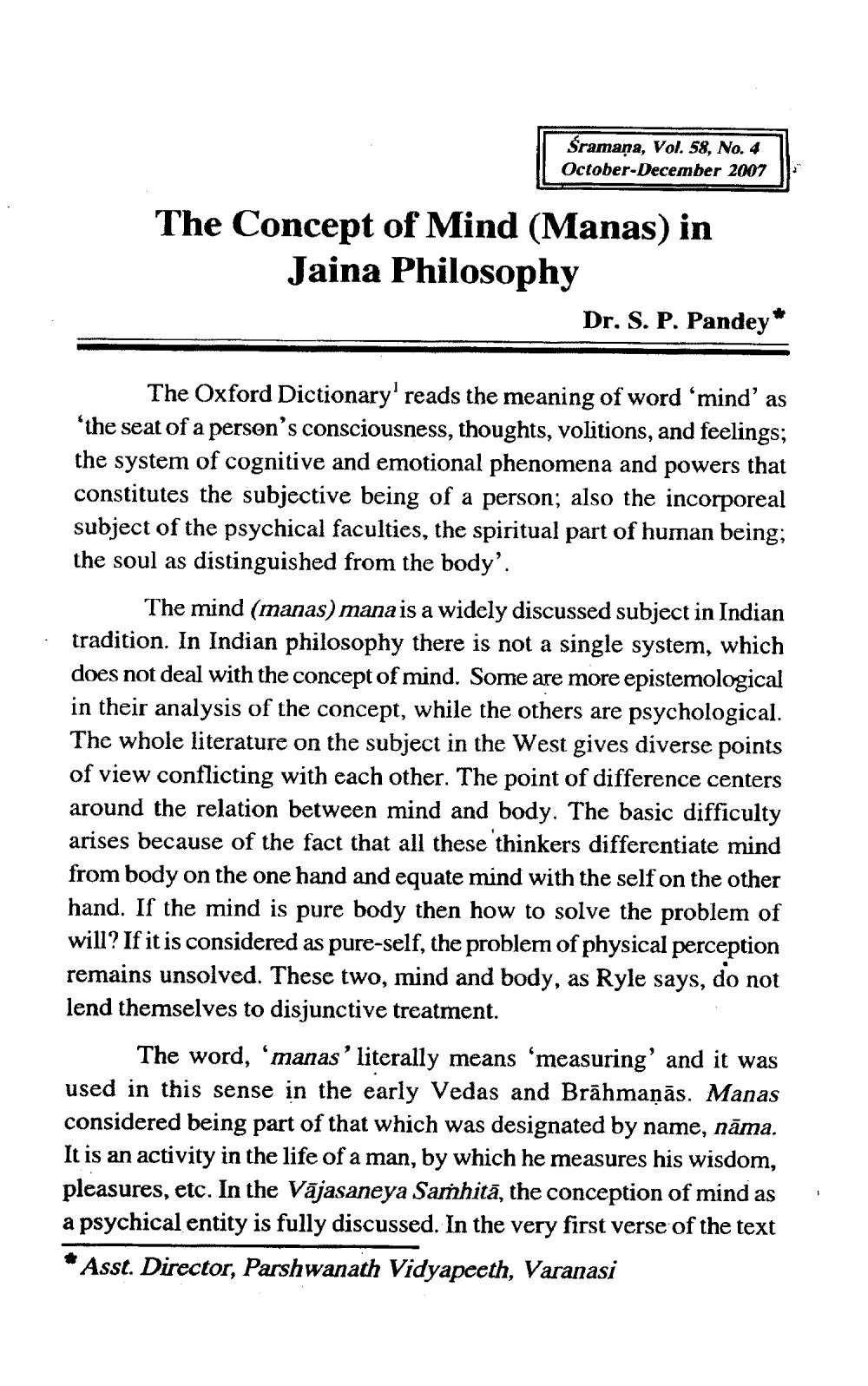________________
Śramaņa, Vol. 58, No. 4 October-December 2007
The Concept of Mind (Manas) in Jaina Philosophy
Dr. S. P. Pandey
The Oxford Dictionary' reads the meaning of word ‘mind' as “the seat of a person's consciousness, thoughts, volitions, and feelings; the system of cognitive and emotional phenomena and powers that constitutes the subjective being of a person; also the incorporeal subject of the psychical faculties, the spiritual part of human being; the soul as distinguished from the body'.
The mind (manas) mana is a widely discussed subject in Indian tradition. In Indian philosophy there is not a single system, which does not deal with the concept of mind. Some are more epistemological in their analysis of the concept, while the others are psychological. The whole literature on the subject in the West gives diverse points of view conflicting with each other. The point of difference centers around the relation between mind and body. The basic difficulty arises because of the fact that all these thinkers differentiate mind from body on the one hand and equate mind with the self on the other hand. If the mind is pure body then how to solve the problem of will? If it is considered as pure-self, the problem of physical perception remains unsolved. These two, mind and body, as Ryle says, do not lend themselves to disjunctive treatment.
The word, ‘manas' literally means 'measuring' and it was used in this sense in the early Vedas and Brāhmaṇās. Manas considered being part of that which was designated by name, nāma. It is an activity in the life of a man, by which he measures his wisdom, pleasures, etc. In the Vājasaneya Samhitā, the conception of mind as a psychical entity is fully discussed. In the very first verse of the text * Asst. Director, Parshwanath Vidyapeeth, Varanasi




